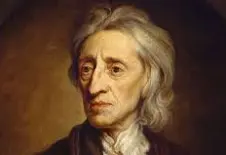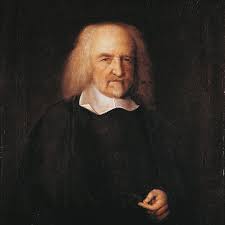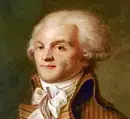Enlightenment/French Revolution Study Guide
1/19
There's no tags or description
Looks like no tags are added yet.
Name | Mastery | Learn | Test | Matching | Spaced |
|---|
No study sessions yet.
20 Terms

John Locke
Enlightenment thinker, people inherently good, 3 rights (life, liberty, and property), constitutional monarchy, Two Treatises of Government (1690), influenced French Revolution

Thomas Hobbes
Enlightenment thinker, people inherently bad, absolute monarchy, Leviathan (1651), influenced French Revolution
Absolute Monarchy
Monarchy with unchecked power, France was an absolute monarchy before revolution (1789)
Bourgeoisie
Educated middle class of France (lawyers, doctors, merchants, etc.) who led the French Revolution (1789-1799)
1st, 2nd, 3rd Estates
3 Estates which split France’s population into 3 social classes (clergy, nobility, everyone else) pre-revolution (1789)
Estates-General
Assembly consisting of representatives from the 3 Estates pre-revolution (1789)
National Assembly
Assembly created by 3rd Estate representatives to replace the Estates-General after political unfairness
Storming of the Bastille
Event that kicked off the French Revolution on July 14th, 1789 when Parisians stormed to Bastille to arm themselves against the King’s Army and a symbolic toppling of the corruption of the king
Tennis Court Oath
Event at the beginning of the French Revolution (June 20, 1789) when the National Assembly vowed to keep meeting until a new constitution was created in a Tennis Court
Universal Male Suffrage
Equal voting rights for all men, adopted in France during the French Revolution (1789-1799)
Declaration of the Rights of Man
French constitution adopted in 1789 by the National Assembly during the revolution
Guillotine
Execution method using a large blade to decapitate people, named after Joseph-Ignace Guillotin, used to execute up to 40000 people during the Reign of Terror
Reign of Terror
Radical and violent stage of French Revolution led by Maximilien Robespierre and the Committee of Public Safety when up to 40000 people were killed, ended July, 1794 (execution of Robespierre)

Maximilien Robespierre- civic virtue
Radical leader of French Revolution/Committee of Public Safety, wanted to create a “republic of virtue” where citizens have to actively prove their allegiance to the state, executed in July 1794
Napoleon Bonaparte
Influential military leader who came to power during the end of the revolution (1799), marking the end of the revolution, introduced reforms, conquered much of Europe, and became Emperor of France before being defeated and exiled
Napoleonic Code
A code of laws created by Napoleon which contained all laws in a single place (post-1799)
Nationalism
Idea of loyalty to one’s country, “fraternity” was one ideal of the revolution, meaning brotherhood among French citizens
Battle of Waterloo
Battle fought near the village of Waterloo between Napoleon’s French army and Europe (specifically England and Prussia) in 1815, marking the end of Napoleon’s reign as he was exiled to St Helena after his defeat
Magna Carta
British constitution that limited royal power and began constitutional monarchies
Mary Wollstonecraft
Writer and philosopher known for her advocacy for women’s rights, wrote A Vindication of the Rights of Woman (1792)